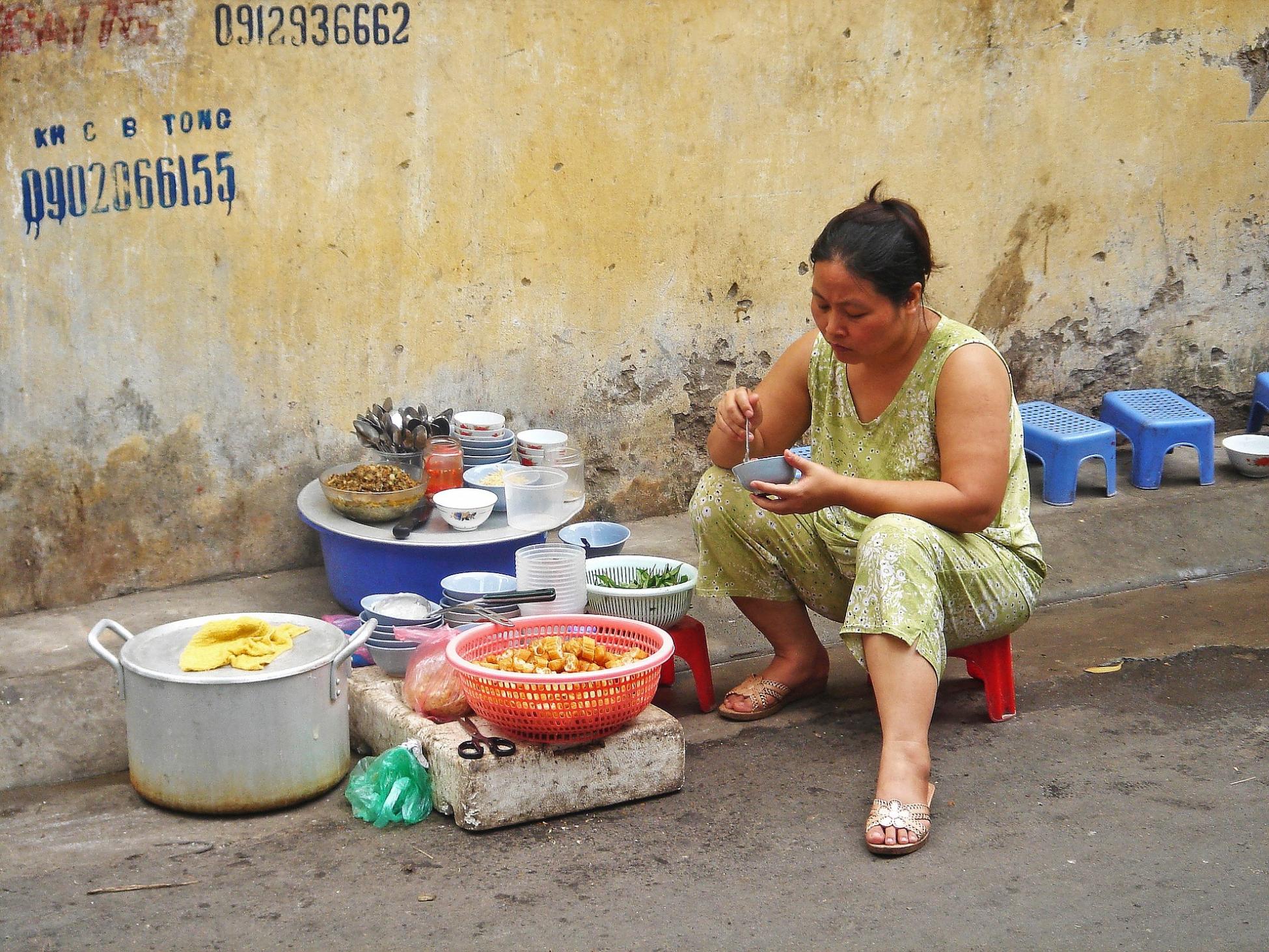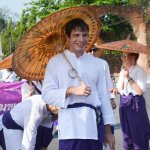The lady in the shop smiled at me over my purchase. "Em cam on anh" ("I thank you") would seem a straightforward thing for her to say. But unlike English—where we use "I" or "you" to simply distinguish the object and subject of a sentence—the long list of personal pronouns in Vietnamese can be used to convey far more than just the subject of your thanks. In fact, if you want to get a grasp of some of the key values that underpin Vietnamese society, these pronouns are the perfect place to start.
In Vietnamese, when two people are chatting, age matters. Who is older and by how much dictates the choice of words. For example with people of a similar age, like in the shop scene I mentioned above, if you are younger you would refer to someone as "anh" or "chi" depending on if they are a man or woman, and that person would call you "em." That’s just the start, with different sets of words to use if the person you’re talking to is a generation or even two generations apart. All in all, it's a lot more complicated than the catchall "I" and "you" we use in English.
The way the language is concerned with how old people are highlights the importance of age in Vietnamese culture. Ancestor worship is a key part of Vietnamese life, and older living people are also afforded huge respect. For example, when Vietnamese families eat together it’s customary for the older members to eat first.
You can also see this respect when two strangers don’t know each other’s age, like in the shop exchange above. Both should use pronouns to refer to the other as older . This does not stem from a genuine assumption from each person that the other is older, but more that to refer to them as such is polite. This is a subtlety of the language often lost on foreigners.
Most personal pronouns in Vietnamese, including the ones I’ve mentioned, are also the words used to label various members of the family. Anh/chi means older sibling; em younger sibling. Once grandma, grandpa and uncles and aunts get involved the words start to resemble an extended family.
"We all see each other as part of one big family in Vietnam." This is reflected in the pronouns.
Family is a big deal in Vietnam. Vietnamese families are often close-knit, with adult children staying with parents, and numerous generations under one roof. Meet a Vietnamese person, and whether you are a foreigner or not, one of the first things you’ll be asked is if you have your own family yet.
One of my friends says that this goes so far that, to some extent, "we all see each other as part of one big family in Vietnam." This is reflected in the pronouns. Venturing out for some street food, I correctly identified the seller as aunt, but then proceeded to refer to myself as younger brother not nephew. This caused all sorts of amusement, but now has becoming a running joke in my regular visits. It’s nice to think that even when used incorrectly, these words can help to foster closer relations between two unrelated people.
Getting to grips with the Vietnamese language will take a lot more than learning personal pronouns, but the way they’re used means it’s a vital place to start. Many Vietnamese are satisfied to use the correct form of address with each other far before they know the other's name.
As a foreigner learning them helps us to get closer to the locals, both by sharing a language and by understanding the values they stand for. For me, it has proven useful in everyday life here, from chatting to locals to ordering food.
Now talking of food, I wonder what auntie's got to eat for her nephew?
Add this article to your reading list




